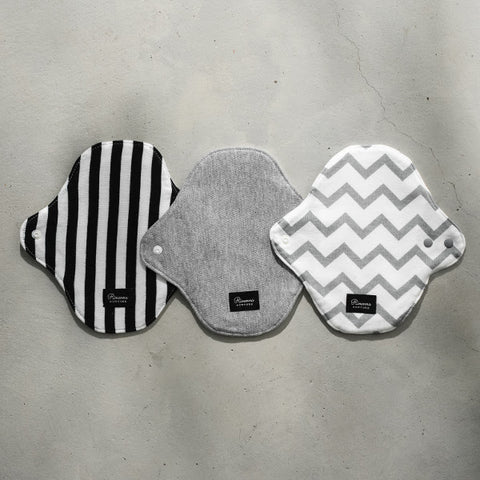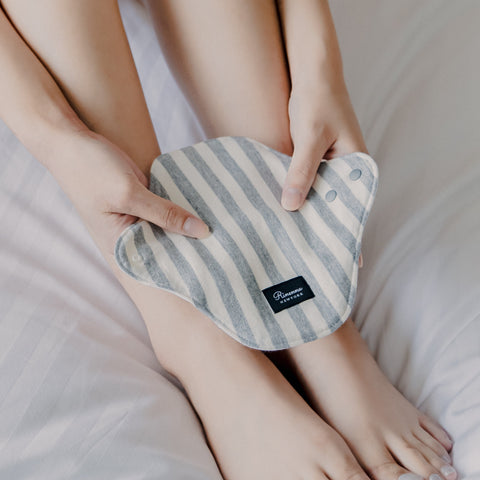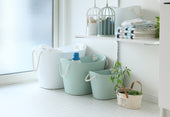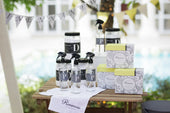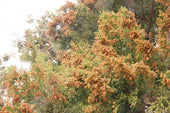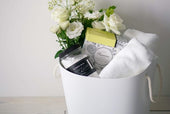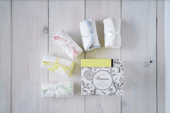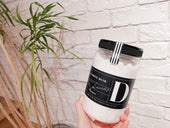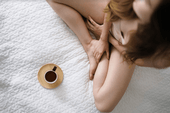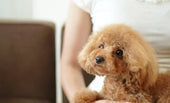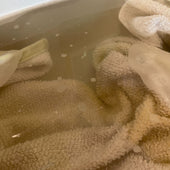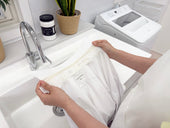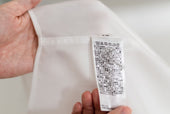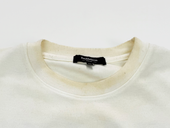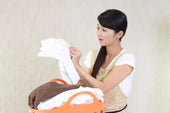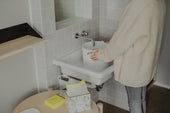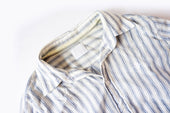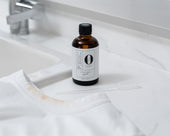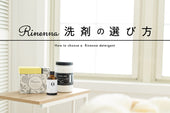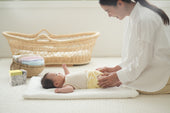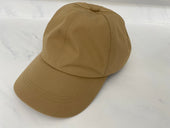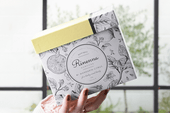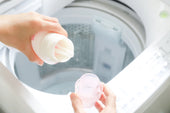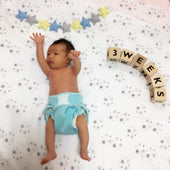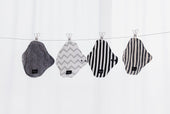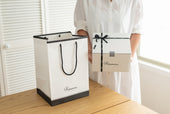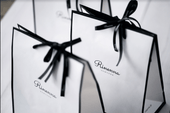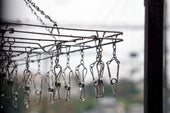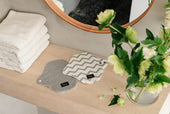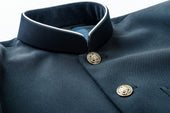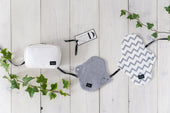Cloth napkins to prevent vaginal discharge that inevitably increases during pregnancy

During pregnancy, you may not have a period, but the amount of vaginal discharge may increase. In such cases, cloth napkins are recommended. The high-molecular polymer used in disposable napkins to help absorb menstrual blood easily hardens into a jelly-like consistency when it absorbs water, which can also cause your body to feel cold. Cloth napkins are made of layers of cloth, so they gently wrap your delicate areas without cooling your body. Napkins made of cotton have good breathability, so you don't have to worry about them getting stuffy and damaging your skin. You can also tell your body's signs of pregnancy by looking at the amount and color of your vaginal discharge. Rinenna's cloth napkins fit your sensitive areas, so it's easy to check for changes in vaginal discharge, and I think it's hard to miss any signs from your body.
Cloth napkins are also recommended to prevent urine leakage during pregnancy.
Urinary incontinence is also one of the common problems during pregnancy. It is said that during pregnancy, hormonal balance changes, and as the pregnancy progresses, the pelvic floor muscles begin to relax in preparation for childbirth, making urinary leakage more likely. Therefore, to prevent urinary leakage during pregnancy, cloth napkins are recommended because they do not put any strain on sensitive areas even when worn for long periods of time. Rinenna's cloth napkins are extremely comfortable to wear! It feels like you're not wearing a cloth napkin, supporting a comfortable pregnancy.
Comfortable cloth napkins to use as postpartum pads
One of the problems faced by women who have just given birth is postpartum lochia. Lochia is a secretion that is discharged from the uterus by the egg membrane and endometrium that protect the baby, and unlike a normal menstrual period, the amount is large and the period lasts for a long time. As a result, many people suffer from rough skin and itching in sensitive areas.
Immediately after giving birth until discharge from hospital
During the first week or so after giving birth, there is a lot of lochia, so postpartum pads are often used. If you are unable to move immediately after giving birth, a nurse may change your postpartum pads, and the hospital may also have them available. They are thicker and larger than regular sanitary napkins, and are about the size of a diaper, but the amount of lochia produced immediately after giving birth is much larger. While using postpartum pads, it is important to keep the delicate areas clean using cleansed cotton to reduce skin problems. Immediately after giving birth, the pain may remain, and some women experience things like ``it hurts to go to the bathroom'' and ``they can't wipe themselves with a tissue.'' Instead of scrubbing, use gentle patting techniques to clean the area, and check for lochia before changing the puerperal pad.

Once the lochia subsides, switch to cloth napkins.
Although there are individual differences in the amount of lochia, it seems that the amount gradually decreases before and after leaving the hospital. Once you are able to use regular sanitary napkins (for nighttime use and daily use) instead of postpartum pads, consider switching to cloth napkins, which are more comfortable to wear and gentle on your skin. When switching to cloth napkins, we recommend night-size napkins, as you won't be going out for a while after being discharged from the hospital and will be lying down a lot. The lochia discharged in lumps on the lever is difficult to absorb with cloth napkins, so it may remain on the surface. In that case, wipe it off quickly with a tissue etc. The period of lochia secretion varies from person to person, but it is said to last 1 to 2 months. During the postpartum period, when there is an increased burden on the delicate areas for a long period of time, your skin may become more sensitive than usual, and you may experience itching and stuffiness more than usual. During this time when we want to reduce the burden on our bodies as much as possible, we will introduce why cloth napkins that are gentle and soft to the touch are useful.

During pregnancy and after giving birth, your skin becomes very sensitive. Care gently with cloth napkins.
During the delicate period of pregnancy and postpartum, even the slightest stuffiness or irritation can easily cause itching and rashes. At times like these, what you want to wear are gentle baby cotton cloth napkins. A warm material that makes you feel good the moment you put it on. It's breathable and prevents stuffiness, so you'll be sure to feel calm.Cloth napkins that can be used for menstruation and everyday use even after childbirth
Cloth napkins can be washed and used over and over again, so they can be used for a long time, from pregnancy to postpartum. Even during the lochia period, you will need napkins every day for about a month, although it varies from person to person, so don't you feel like it's a waste to use multiple disposable napkins? Disposable napkins also generate waste each time you use them, but cloth napkins can be washed and dried to prevent waste. Women who choose cloth napkins have environmental and economic benefits in the long run, as they can be used for a long time even after pregnancy and the puerperal period after giving birth, as they can be used for normal menstruation, vaginal discharge, and urine leakage. is increasing. Rinenna's cloth napkins are not only comfortable to the touch and absorbent, but also have a stylish design. Even if they are in the laundry, no one will think they are cloth napkins at first glance, so they blend into everyday life.
Women who choose cloth napkins have environmental and economic benefits in the long run, as they can be used for a long time even after pregnancy and the puerperal period after giving birth, as they can be used for normal menstruation, vaginal discharge, and urine leakage. is increasing. Rinenna's cloth napkins are not only comfortable to the touch and absorbent, but also have a stylish design. Even if they are in the laundry, no one will think they are cloth napkins at first glance, so they blend into everyday life.
What I am curious about is how to wash cloth napkins.
Your physical condition and lifestyle will change dramatically during pregnancy and after giving birth, so when using cloth napkins, you'll have to worry about washing them. Actually, washing cloth napkins can be completed in 3 steps. This time, we will introduce how to wash cloth napkins using Rinenna #1, which focuses on stains from blood and the body.
Make a soaking liquid for cloth napkins
Dissolve 1 spoonful of Rinenna #1 in 2 liters of 40℃ hot water in a bucket.Moisten the cloth napkin and leave it to soak.
Soak a cloth napkin overnight in a bucket, dirty side down. If the napkin seems to float, use a plastic bottle filled with water to weigh it down.Wash cloth napkins in the washing machine
Add your usual laundry detergent or Rinnenna #1, put the soaked liquid into the washing machine, and wash as usual. Introducing detailed laundry instructions with videos and photos!
 |
The correct way to wash cloth napkins! Easily remove dirt by soaking and washing |
Rinenna offers a set that allows you to easily start using cloth napkins as pads during pregnancy and postpartum, as well as a ``combined set'' that also includes detergent and a bucket.
You can immediately start a cloth napkin life that suits you. The Omniutti Bucket recommended by Rinenna has a lid, so you can use it without worrying about giving birth or when you are being cared for by someone else. A bucket with a lid that looks stylish and has won the Good Design Award! If you are pregnant or planning to give birth, please try Rinenna's cloth napkins. 

